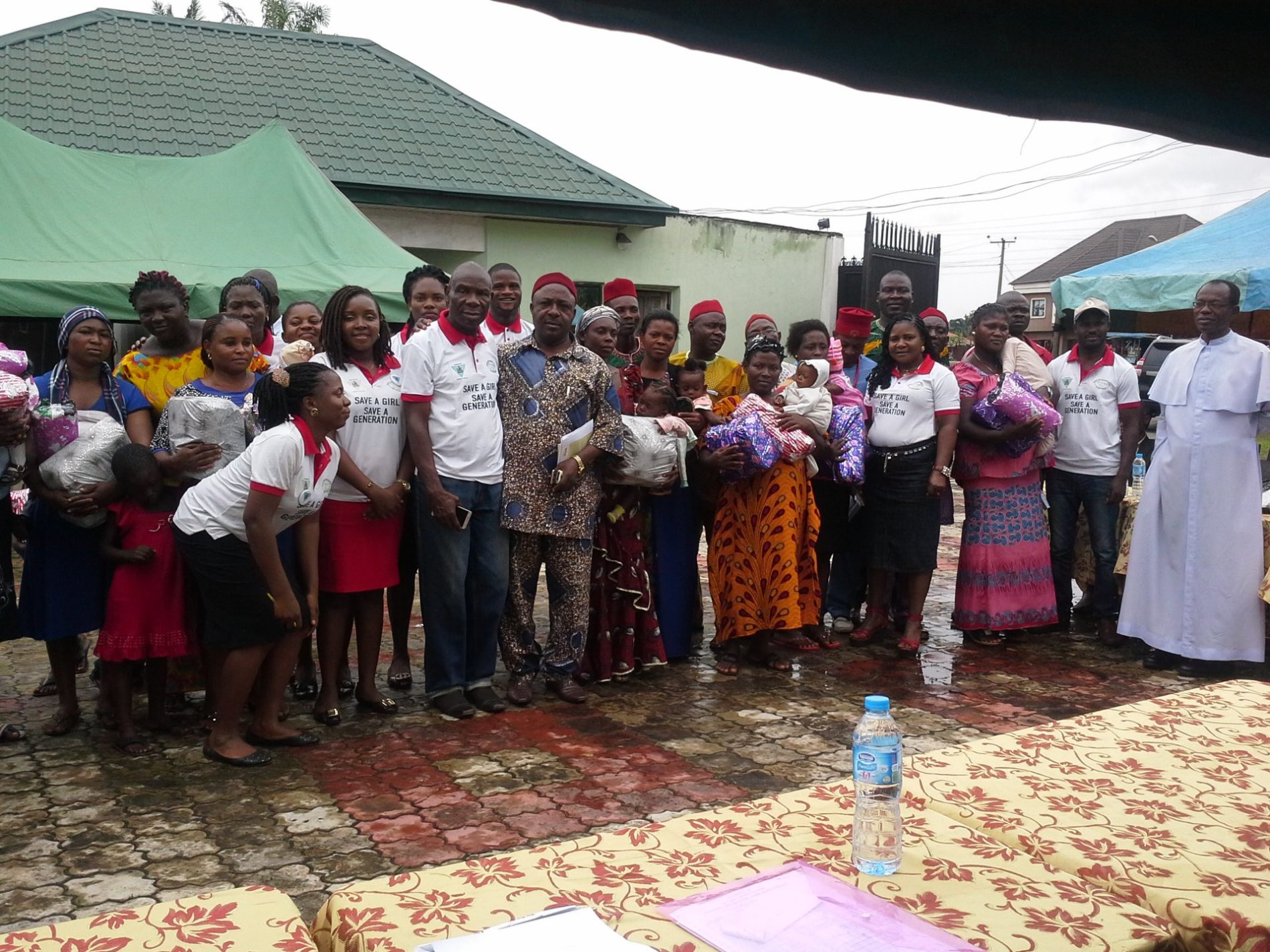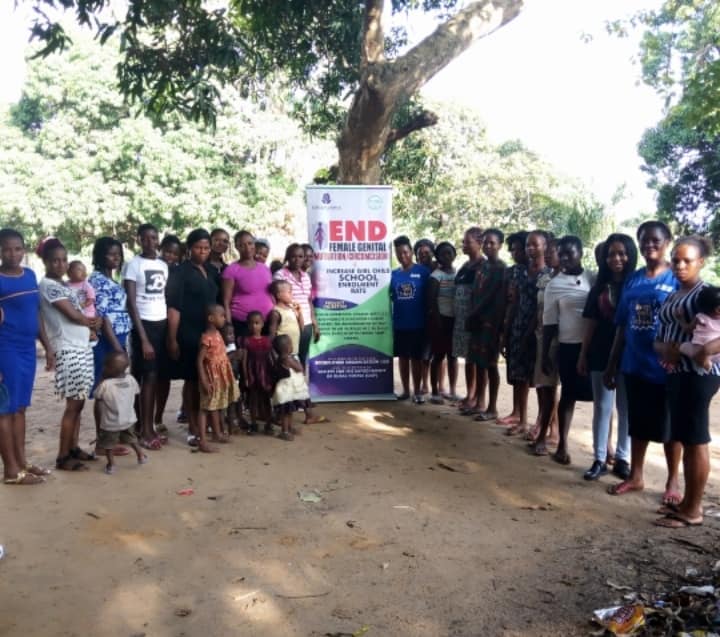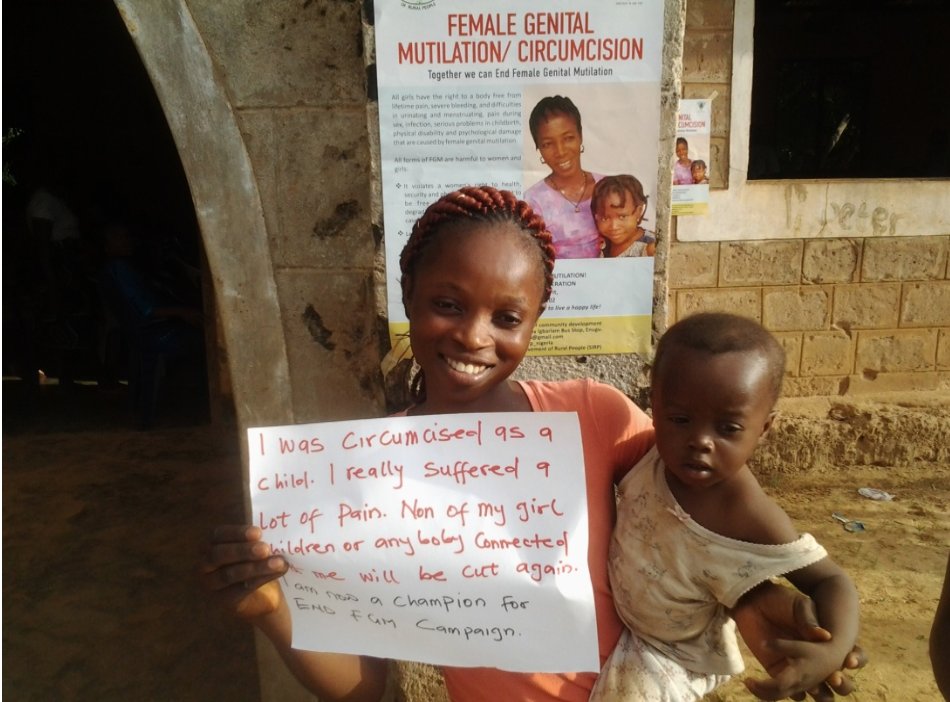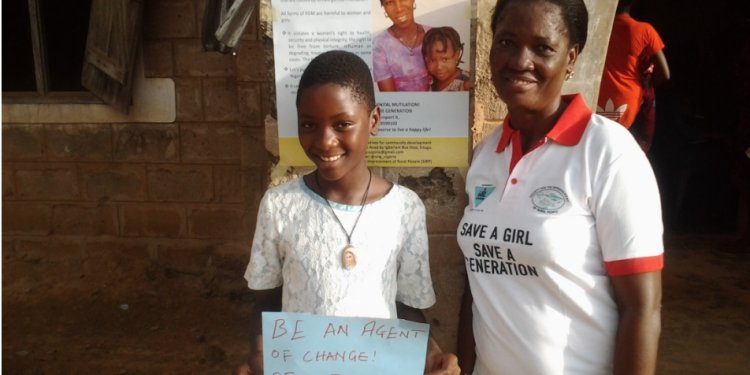One major factor for the sustained oppression of women and girls in Nigeria today is female genital mutilation or cutting (FGM/C). Over the years, this issue has had a huge impact on the economic growth of women and girls. In order to bring more awareness to FGM/C, this article will give a general overview of the issue in Nigeria with regards to statistics and legislative action in addition to discussing how FGM/C affects the economic growth of women and girls in Nigeria.
Globally, 200 million women and girls have been mutilated or cut. In Nigeria alone, 20 million women and girls have been mutilated, which is 10% of the global total. Therefore, 1 out of every 10 mutilated women in the world is Nigerian.
There are many reasons why FGM/C is practiced in Nigeria, ranging from cultural reasons to its use in curbing illicit sexual appetites of women and girls in the country. But, in this article, I will mainly dwell on some of the reasons why it is practiced in Enugu, the state that I am from. In Enugu, FGM/C is normally practiced as a result of the patriarchal system which is evident in most communities in the state and which ensures male dominance over women. FGM/C is seen as a way in which men in Enugu subject and impose themselves onto the women.
Another reason for the continuance of this practice is that FGM/C is often considered a religious or cultural obligation (e.g. rite of passage into adulthood, Female Genital Cutting as part of Naming ceremony).

In most communities in Enugu, FGM/C is carried out on the eighth day after a girl’s birth, to coincide with the child’s naming ceremony. The ceremony is a festive event with gifts and refreshments, but the naming and cutting are linked. Due to this affiliation, poor mothers cannot openly resist the mutilation of their female children because if they did, they wouldn’t be able to have their naming ceremony.
Legislation Prohibiting FGM/C in Nigeria
Before the Violence Against Persons Prohibition Act (VAPP) was passed into law in Nigeria, most lawyers, NGOs and anti-FGM campaigners in Nigeria were relying on the Nigerian Constitution and on the Child Rights Act (CRA) to help speak out against FGM/C in the country. But, the two foregoing laws do not explicitly mention FGM/C as a criminal offense and therefore do not deem FGM/C illegal specifically.
Currently, 13 out of 36 states in Nigeria have their own individual state laws expressly prohibiting FGM/C. These states are Lagos, Osun, Ondo, Ekiti, Bayelsa, Ogun, Delta, Ebonyi, Oyo, Imo, Edo, Cross-River and Rivers.
While the Nigerian Constitution and the CRA don’t explicitly mention FGM/C, here are the provisions that refer to the illegality of the practice:
The 1999 Constitution of the Federal Republic of Nigeria (CFRN), the supreme law of the land, states in Section 34 that “no person shall be subjected to any form of torture, inhuman or degrading treatment or punishment”. FGM/C falls under the above categories and thus can be punishable under this section.
The Child Rights Act (CRA), which was passed in 2003 in Nigeria, also has some provisions that outlaw this practice. Section 11(B) of this act states that “no child shall be subjected to any form of torture, inhuman or degrading treatment or punishment”. However, it must be noted that this act is only enforced in 23 states and Nigeria’s Federal Capital Territory (FCT), Abuja.
While these two examples appear to deem FGM/C illegal, they don’t specifically mention the practice. As a result, lawyers, NGOs and anti-FGM campaigners in Nigeria came together and started to advocate for a law which would specifically mention FGM/C as a criminal offense.
Consequently, in 2015, under the Goodluck Jonathan’s administration, the VAPP Act was passed into law. This particular legislation explicitly mentions FGM/C as a criminal act. It also makes FGM/C and other forms of gender-based violence such as rape, spousal battery, forceful ejection from home and harmful widowhood practices punishable offenses in Nigeria. The VAPP Act also arranges provisions for the maximum protection of victims and for the distribution of effective remedies to them.
Additionally, the VAPP Act outlines a set of punishments for FGM. These punishments include:
- Anybody who performs or engages another to perform FGM/C on any person is liable to a term of imprisonment not exceeding 4 years or to a fine not exceeding N200,000 or to both.
- Anybody who attempts, aids, abets, or incites another to carry out FGM/C is liable to a term not exceeding 2 years imprisonment or to a fine not exceeding N100,000 or to both.
Related Articles: DreamGirls Academy: An Opportunity for Women’s Empowerment in South Africa| EdTech for All: An Interview with KAINOafrica|The Significance of Women’s Economic Empowerment Post-Conflict
The Limitations of the VAPP Act
While the passing of the VAPP Act was successful, three years later there has not been a single FGM/C conviction in Nigeria. The two major reasons the act has been ineffective are:
The lack of enforcement of the VAPP Act. Under our system, a federal law cannot apply in a particular state unless it is domesticated in that particular state. Currently, the VAPP Act is actively enforced in Abuja, Anambra, Oyo and Ebonyi; only 3 out of the 36 states in Nigeria and the FCT.
This lack of domestication of the VAPP Act brings us to an incident last year. A Facebook user named Alhaji Adebayo publicly advertised for free cutting of girls in the state of Kwara and posted graphic images of girls being mutilated. This case was duly reported to the police, but Adebayo has still not been arrested because Kwara presently has not taken steps to domesticate the act and cutting is therefore still legal.
Little or no awareness of this act in Nigeria. The effectiveness of the VAPP Act is also limited because many Nigerians do not know about it. Currently, it is estimated that 1 out of every 100 Nigerians knows about the existence of this law. It is also estimated that only 10 out of every 200 Nigerians really know what this act says.
To further buttress this point, a study was recently conducted in the Nsukka Local Government Area (LGA) of Enugu. The purpose of this study was to determine the level of awareness among Enugu citizens of the VAPP Act in 2015.
A multi-staged sampling procedure was used and 210 women who accessed various health services in the 35 public primary health facilities in Nsukka were selected. The data was collected through self-developed questionnaires and was analyzed using figures and percentages to answer the research questions.

10 women out of the 210 participants had heard of the VAPP Act, meaning that 200 (95.2% of the pool) had not. After explaining the meaning of the act to the women, they were then asked if they thought this law should be domesticated in Enugu. 190 women (90.47% of the pool) said that it should be. Those that were against its domestication said that FGM/C is part of their culture and that it helps to curb promiscuity among women.
Women Economic Empowerment (WEE)
Women Economic Empowerment (WEE) is defined as the process by which women gain the ability to make decisions for themselves and others around them. Others here could include a woman’s immediate family, her friends, community members or the society at large. For a woman to be deemed economically empowered, she must have the ability to meet not just her own financial needs, but also the financial needs of others.
Currently in Nigeria, women and girls are not economically empowered despite the many benefits that are gained with this empowerment. One such benefit is that the family gains a second source of stable income.
How FGM/C Affects the Economic Growth of Women and Girls in Nigeria
FGM/C is a practice which affects not just the health of every woman and girl, but also impacts her economic growth and development. In Nigeria, FGM/C serves as a precursor to child marriage. Girls are mutilated to keep them pure and chaste for the men who intend to marry them. An uncut girl is largely not wanted as a child bride, because she is seen as unclean in the eyes of many men in the community.

After a girl is mutilated or cut, the family marries her off at a tender age, often between the ages of 10-16 years old. When a girl is married, she is impacted immensely. She drops out of school to spend more time with her husband and to take care of her children. Girls who once wanted to become lawyers, doctors, or entrepreneurs see all these dreams fade away right before their eyes because their lack of education makes them unemployable.
Ultimately, it’s high time we start treating FGM/C as a major issue. This practice has prevented women and girls from reaching their full potential and has essentially decreased their ability to gain independence. It is an enduring symbol of patriarchal oppression that must be eliminated in order for women to become economically and socially empowered.
Editor’s Note: The opinions expressed here by Impakter.com columnists are their own, not those of Impakter.com
Featured Image: A young girl from one of the rural communities holds a sign that reads: “Be an agent of change! Stop FGM!” Featured Photo credit: Society for the Improvement of Rural People (SIRP)









